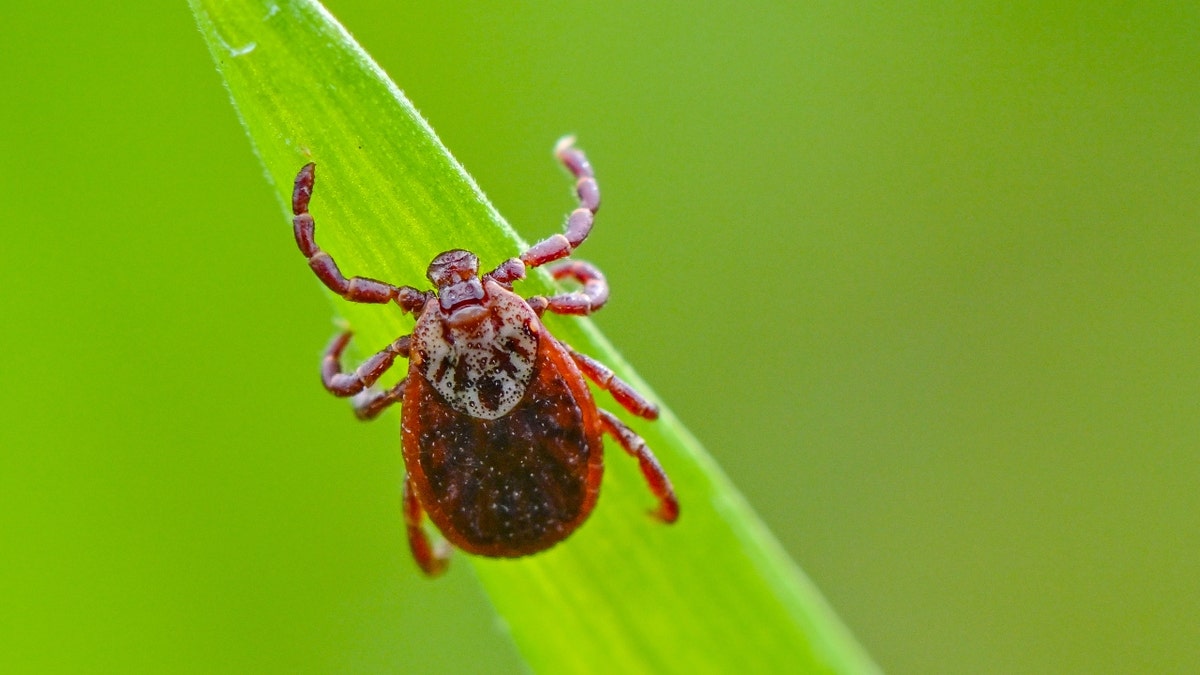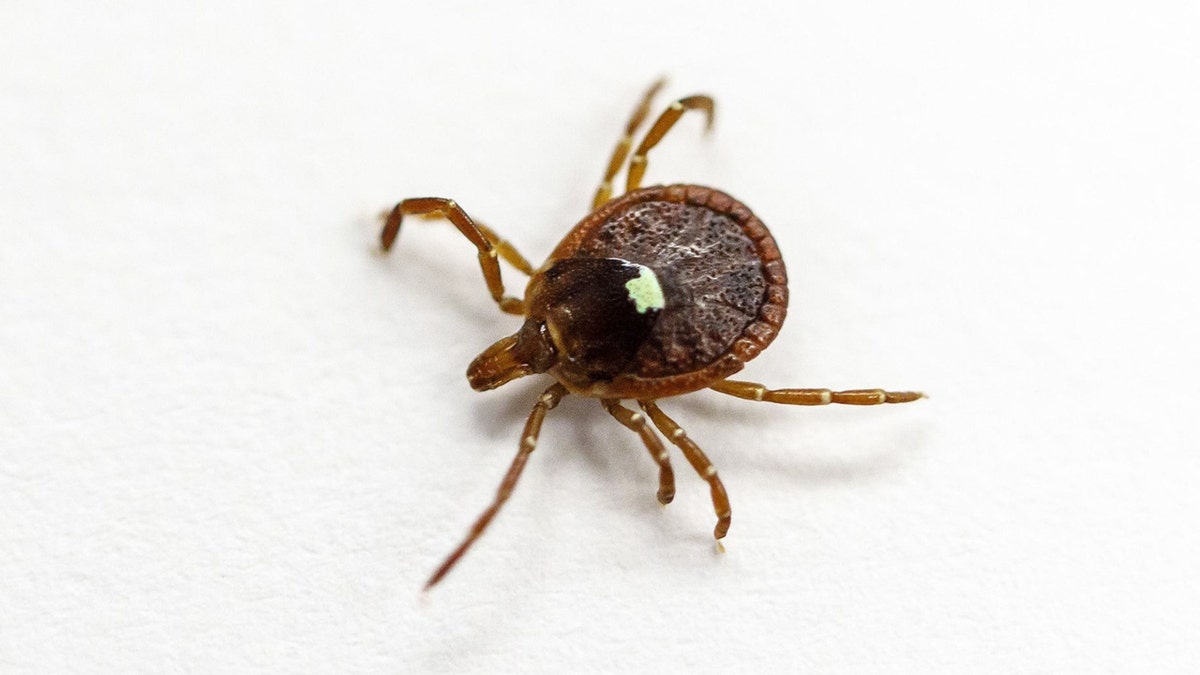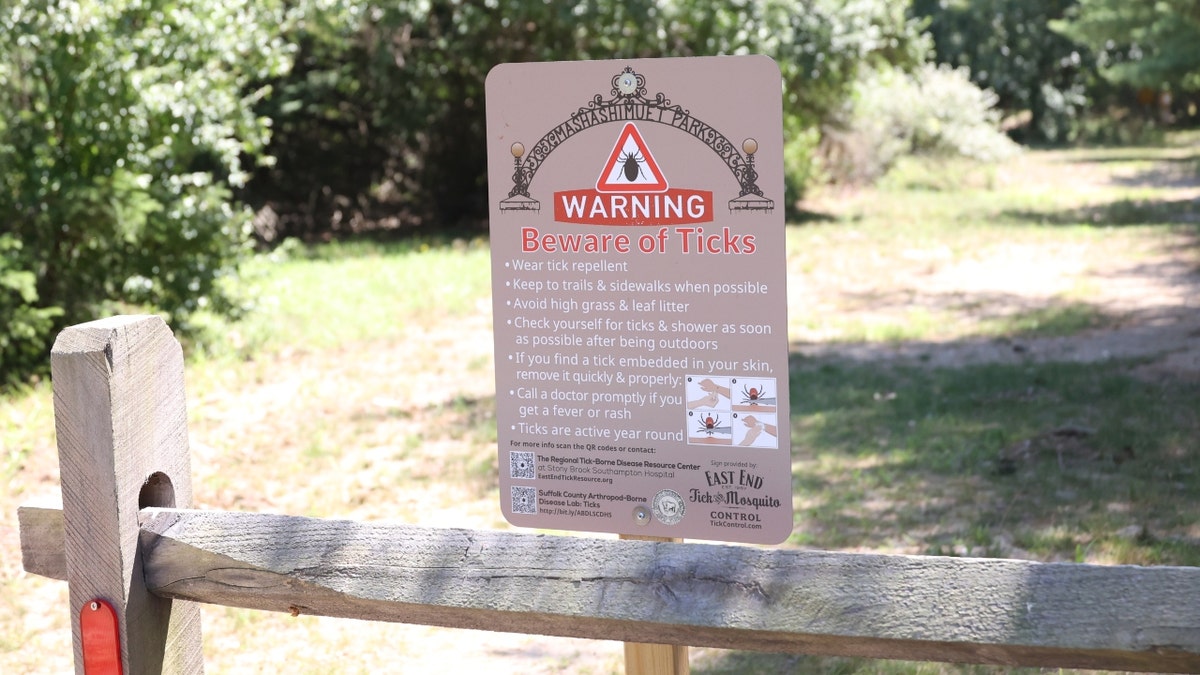Scientists claim new DNA-editing tool could correct 89 percent of disease-causing gene mutations
The breakthrough gene-editing tool 'prime editor' builds on an existing method to edit DNA called CRISPR; Jonathan Serrie reports from Atlanta.
A Rhode Island woman is dead after contracting a rare case ot the tick-borne Powassan virus disease.
The Rhode Island Department of Health said the virus had been detected in a Washington County resident over 80.
She developed neurological symptoms and passed away in mid-July.
Laboratory testing had been conducted by the Centers for Disease Control and Prevention, which confirmed the finding earlier this month.
DENGUE VIRUS SPREADS ACROSS FLORIDA COUNTIES, HEALTH OFFICIALS SAY

A tick (Ixodida) on a stalk in a meadow. (Patrick Pleul/picture alliance via Getty Images)
Powassan virus is spread to people through the bite of an infected tick.
The disease is mainly found in the Northeast and the Great Lakes regions of the U.S.
While cases are rare, the CDC notes that the reported number has increased in recent years.
RHODE ISLAND MAN, 25, FALLS TO DEATH AT COLORADO NATIONL PARK WATERFALL OVER HOLIDAY WEEKEND

A live specimen of the lone star tick (A. Americanum) in a lab in Morrill Hall at the University of Illinois at Urbana-Champaign in 2017. (Brian Cassella/Chicago Tribune/Tribune News Service via Getty Images)
More than 239 cases have been reported in the U.S. over the past decade, from 2013 to 2022.
This year, there have been 11 Powassan virus disease cases across the U.S.
Initial symptoms include fever, headache, vomiting and weakness.

Signs warning of ticks at the entrance to a trail at Mashashimuet Park on Main Street in Sag Harbor, New York, on Aug. 2, 2023. (James Carbone/Newsday RM via Getty Images)
The disease usually progresses to meningoencephalitis, including meningeal signs, altered mental status, seizures, difficulty understanding or speaking, muscular weakness or paralysis, movement disorders or cranial nerve palsies.
CLICK HERE TO GET THE FOX NEWS APP
People with severe Powassan often need to be hospitalized.
There is no vaccine or treatment for the disease, so preventing exposure to ticks is the best strategy to avoid this disease.

